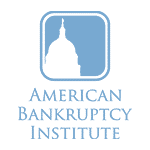
Chapter 7 Bankruptcy Lawyers in Philadelphia
Contact Us Today
Thinking of Filing Chapter 7 in Philadelphia? Don’t Sweat It! Call Philly’s Top-Rated Chapter 7 Bankruptcy Lawyers Today!
Are you concerned that your home will be foreclosed on because of your bills and debt? Is your credit report holding you back from achieving your goals and dreams? Has a failed business, divorce, illness, or other situation caused you to have a significant amount of debt? If you answered yes to any of these questions and you are feeling like you’ll never get ahead financially, pursuing a Chapter 7 liquidation bankruptcy could be the best solution for you.
Many Americans are struggling to pay their bills right now, and debt problems can happen to anyone. Our legal system provides the bankruptcy process as a way to help people recover financially. Filing for a Chapter 7 bankruptcy can help good people in difficult situations restore their financial stability. The bankruptcy process may seem difficult or complex, but you can file for bankruptcy with the right bankruptcy lawyer and begin your fresh start.
Chapter 7 Bankruptcy Lawyers Serving Center City, Bucks, Montgomery, and Delaware Counties
Are you considering filing for a Chapter 7 bankruptcy, but you aren’t sure where to start? Do you have questions about the process? If so, the experienced Philadelphia Chapter 7 bankruptcy lawyers at Law Offices of Cibik Law are here to answer your questions. We will review your financial situation and help you decide if a liquidation bankruptcy will be the best option for you. We can also assist you with contracts, business plans, credit report disputes, real estate transactions, and other essential matters associated with bankruptcy. To arrange your personal consultation with a skilled Philadelphia bankruptcy attorney, contact us today.
Learning the Definitions: What is Chapter 7 Bankruptcy?
There are several types of bankruptcy, and understanding the differences between them can help you choose the best option for your situation. Chapter 7 bankruptcies are often called liquidation bankruptcies. After you file your petition, the court will liquidate your asset and use the money from the sales to pay your creditors. You will not have to sell all of your assets, however. A Chapter 7 bankruptcy lawyer can help you properly file for exemption so you can retain your home, automobile, some real estate holdings, qualified retirement account savings, and some of your personal property. At the end of the Chapter 7 bankruptcy, the majority of your debt obligations will be eliminated.
What is the Difference Between Chapter 7 and Chapter 13 Bankruptcy?
Chapter 7 and Chapter 13 bankruptcies are the most commonly used forms of bankruptcy. Both of these types of bankruptcy can help Philadelphia residents who are over their heads in debt. However, there are significant differences between the two types of bankruptcy filings. As mentioned above, Chapter 7 bankruptcies are called liquidation bankruptcies. At the end of the Chapter 7 bankruptcy, the court will liquidate some of your debt. You will have to surrender your assets to pay for the debt.
On the other hand, in Chapter 13 bankruptcy, you will not have to sell or liquidate your assets to pay your debtors. Instead, the bankruptcy trustee will help you develop a three to a five-year repayment plan. After you make all of your monthly payments, you will be able to keep your property. Keep in mind that neither Chapter 7 or Chapter 13 bankruptcy will allow you to discharge debt related to child support, alimony, and certain types of taxes. If you do not know which kind of bankruptcy will work best for you, we recommend discussing your case with one of these skilled lawyers at the Law Offices of Cibik Law.
Should I File a Chapter 7 or a Chapter 13 Bankruptcy? Why Consider Chapter 7 Bankruptcy?
Depending on the type of debt you have, Chapter 7 bankruptcy may be the right solution for you. Look to the type of debt you have to decide.
Generally, there are three kinds of debt: priority, secured and general unsecured.
Priority debt consists of recent tax debt and domestic support obligations such as alimony and child support. Priority debt is not dischargeable in a Chapter 7. Unless it’s paid in full during the case, you still owe it after you get a discharge.
Most secured debt, that is, debt where you pledge something as collateral, such as mortgages and car loans, are changed from “recourse debt” to “non-recourse debt.” What does this legalese mean? It means that if the lender could sue you for a deficiency or shortfall after a foreclosure or repossession if the sale of the collateral doesn’t bring in enough to pay the debt in full, the bankruptcy discharge stops them from going after you. All they can go after is the collateral, and if it doesn’t bring in enough to pay the debt in full, tough. You’re off the hook. This means that you can walk away from the house or car if you want to. If you don’t want to, just keep the payment current and you’ll be fine.
Upon the entry of a discharge, most general unsecured debt-credit cards, medical debt, personal loans, old taxes, tax penalties, foreclosure and repossession deficiencies, unpaid rent, unpaid HOA and condo fees, unpaid utility bills, etc. (but not student loans)-are wiped out. You don’t need to pay these debts at all. A typical Chapter 7 lasts about 4-5 months from filing to discharge.
Why Consider Chapter 13 Bankruptcy?
Why would you want to file a Chapter 13? Several main reasons:
• You aren’t eligible for a Chapter 7.
• You fail the means test, or have too much disposable income to qualify for a Chapter 7.
• Or you might have filed a Chapter 7 case in which you received a discharge within the last eight years. None of these are problems in a Chapter 13.
• You are behind on your mortgage and need time to catch up. A Chapter 13 gives you up to five years to spread these payments out to bring the mortgage current.
• You owe more on the first mortgage on your home than it’s worth, and have a second or third mortgage. A Chapter 13 lets you “strip off,” or wipe out, wholly unsecured second and third mortgages.
• You’re behind on your tax or domestic support payments and need time to catch up. A Chapter 13 gives you up to five years to spread these payments out to bring them current.
In these circumstances, I would normally advise my clients to consider a Chapter 13.
Knowing the Steps: The Process of Filing for Chapter 7
The first step in filing for a Chapter 7 bankruptcy should be discussing your case with a lawyer. Your lawyer will help you analyze your financial situation, decide which type of bankruptcy works best for you, and file your petition. You will need to file your petition with a bankruptcy court to begin the process. In addition to the petition, you will need to submit schedules of assets and liabilities, a schedule of your current income and expenses, a statement of your financial affairs, and a schedule of executory contracts and unexpired leases. You will also need to provide the bankruptcy trustee a copy of your tax return for the most recent tax year.
Ensuring that all the information on your application is accurate is a crucial aspect of filing for bankruptcy. If you exaggerate information, leave information out, or try to falsify any of your records, you could face criminal charges. One of the Chapter 7 bankruptcy lawyers at the Law Offices of Cibik Law can help you ensure that your application is accurate and error-free. Before the bank finalizes your bankruptcy, you will need to attend a credit counseling class and a hearing with your creditors. The bankruptcy trustee May request additional information from you, and you must provide it in a timely fashion.
The Chapter 7 Bankruptcy Means Test: Am I Qualified to File for Chapter 7?
Not everyone qualifies to file for Chapter 7 bankruptcy. You will need to pass a means test to qualify. The means test looks at your disposable income that you could put towards paying off your debt. If most of your debt is from a business you own, you will probably pass the means test. However, if your debt is primarily from credit cards or medical debt, you may have difficulty passing it.
The means test is a somewhat complicated process, and one of our experienced bankruptcy lawyers can help you determine whether you will pass it. If you have a high-value house or vehicle, you may not qualify for Chapter 7 bankruptcy. If you do not qualify for a Chapter 7 bankruptcy, you can file a Chapter 13 bankruptcy.
Does Chapter 7 Wipe Out All Debt?
Chapter 7 bankruptcy wipes out most secured debt, including credit card debt, medical debt, and unsecured personal loans. Even if the sale of your assets does not cover all of this debt, it is fully discharged as a result of Chapter 7 bankruptcy.
Not all debt is covered by Chapter 7, however. Student loans, alimony, child support, and other governmental debts such as court fines and penalties are not discharged under Chapter 7. Other types of debt that are not covered include some tax debts, homeowners association fees, and certain personal injury debts, such as those owed due to intoxicated driving.
What Can You Keep When Filing Chapter 7?
When you file Chapter 7 bankruptcy, some property is subject to forfeiture. Any nonexempt assets, property with a lien on it, or property offered as collateral may be sold to repay debts.
Some property and assets are exempt from repossession in Chapter 7, but exemptions and limits vary state by state. There are also federal bankruptcy exemptions, and in 17 states including Pennsylvania, you can choose the federal exemption system if it is more beneficial in your specific situation.
Call the Philadelphia Chapter 7 Bankruptcy Lawyers at Cibik Law Today
The experienced bankruptcy lawyers at the Law Offices of Cibik Law have represented clients throughout Philadelphia, Center City, and Bucks, Montgomery, and Delaware Counties file for Chapter 7 bankruptcies. Contact our Law Firm today to schedule an initial consultation to discuss your case with one of our expert chapter 7 bankruptcy lawyers.










